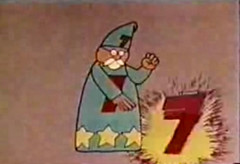(Wish I was) homeward bound
I postpone the next installment of Pynchon notes in favor of a discussion of basically the same thing, the problematic of transcendental philosophy and its reflection in political thought.
Let’s begin with the suggestion that transcendental philosophy is animated by a sort of paranoia; in attempting to articulate the conditions of the possibility of experience, we seek the absent, constituting other of our lived world. Its traces are everywhere—everything bears its form—but it can be known only in its effects. Any attempt to reveal it as an unmediated presence neglects its constitutive role in presentation as such; what we think with cannot be contained in thought; thought’s performance cannot be held in its own representation.
The early Lukács frames the matter this way:
If you are a Hegelian, you demand that everything again be speakable, that the real again be coextensive with the ideal. Content resolves into form; the beautiful, the true, and the good emerge in a social order that brooks no privacy. The internal is extruded; the external is held in thought’s embrace; mind is redistributed over the collective. Language speaks its other.
If you are a Kantian, you view the myth of the return as the natural dream of self-conscious beings who want to know themselves, and you are content to regard it as a noble hope best articulated in literature and religion; you set it outside what can be known and controlled. You say what you can about the structures of thought that analysis and inference reveal in experience, but you acknowledge that the power of reason is limited, and that the ultimate shape of the self isn’t for us to know; you stand in awe of the unfathomable subject and recognize that respect is the proper attitude to what cannot be harnessed in technology.
Let’s begin with the suggestion that transcendental philosophy is animated by a sort of paranoia; in attempting to articulate the conditions of the possibility of experience, we seek the absent, constituting other of our lived world. Its traces are everywhere—everything bears its form—but it can be known only in its effects. Any attempt to reveal it as an unmediated presence neglects its constitutive role in presentation as such; what we think with cannot be contained in thought; thought’s performance cannot be held in its own representation.
The early Lukács frames the matter this way:
What is the problem of the transcendental locus if not to determine how every impulse which springs from the innermost depths is co-ordinated with a form that it is ignorant of, but that has been assigned to it from eternity and that must envelop it in liberating symbols?Lukács contrasts the alienation and exile of the transcendental philosopher with the pre-philosophical experience of ancient men of Homeric times, for whom meaning was immanent in the world. When forms were coextensive with things, meaning had no other and needed no origin. This is the world of Auerbach’s Homer:
Clearly outlined, brightly and uniformly illuminated, men and things stand out in a realm where everything is visible; and not less clear—wholly expressed, orderly even in their ardor—are the feelings and thoughts of the persons involved.Nietzsche, as Arendt points out, places the yearning for this fictive past at the center of German idealism:
One is no longer at home anywhere; at last one longs back for that place in which alone one can be at home: the Greek world! But it is in precisely that direction that all bridges are broken—except the rainbow-bridges of concepts.Transcendental philosophy is preoccupied with the myth of a return to the presence of original intelligibility. If you are a Heideggerian, you fantasize a return to this home, but you recognize that the rainbow-bridges of concepts are just as broken as the bridges themselves. Your philosophy expresses your hatred for automobiles and radios in a reverence for earthenware jugs and peasants’ boots. A return to ancient times is impossible, but a (suitably purged) rustic regionalism may return you to a sense of the immanence of meaning.
If you are a Hegelian, you demand that everything again be speakable, that the real again be coextensive with the ideal. Content resolves into form; the beautiful, the true, and the good emerge in a social order that brooks no privacy. The internal is extruded; the external is held in thought’s embrace; mind is redistributed over the collective. Language speaks its other.
If you are a Kantian, you view the myth of the return as the natural dream of self-conscious beings who want to know themselves, and you are content to regard it as a noble hope best articulated in literature and religion; you set it outside what can be known and controlled. You say what you can about the structures of thought that analysis and inference reveal in experience, but you acknowledge that the power of reason is limited, and that the ultimate shape of the self isn’t for us to know; you stand in awe of the unfathomable subject and recognize that respect is the proper attitude to what cannot be harnessed in technology.


2 Comments:
Wonderful post. Can you attribute that quote from the Birth of Tragedy to a specific section? I can't seem to find it anywhere...
Agamus,
The quotation is not from The Birth of Tragedy, but from The Will to Power, §419. Nietzsche--at least the earlier Nietzsche--usually seems pretty nostaglic for the Greeks himself. And what is the first essay in On the Genealogy of Morality but a rainbow bridge of concepts? Maybe there's no better description of Nietzschean philology.
Sorry I'm not more consistent in my attributions--if a citation looks too ugly, I'll leave it out. One of the freedoms afforded by this medium.
FK
Post a Comment
<< Home